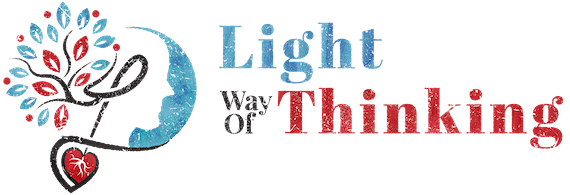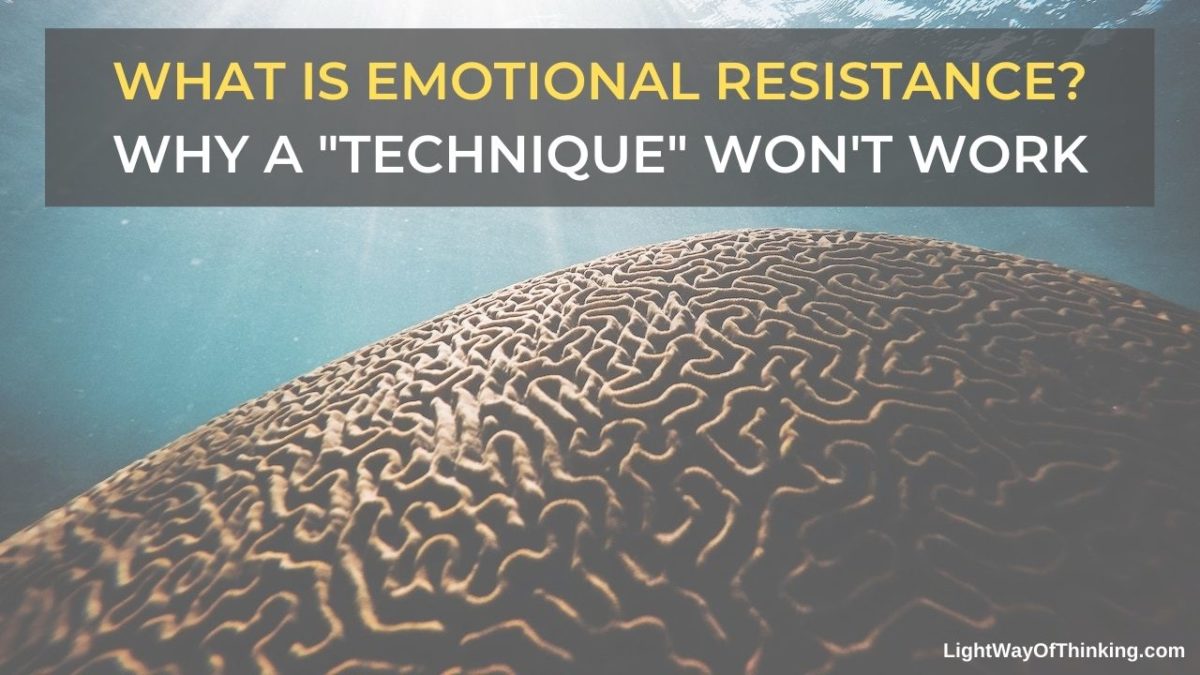There are so many tools for improving yourself out there. I’m sure if you’re reading this, you’re aware of quite a few. But do you find when you try to use them at times, they just don’t work? You’re wondering, “What is this emotional resistance? Why am I making myself feel worse when this thing is supposed to make me feel better?”
Like you’re feeling anxious so you try some breathing exercises for anxiety, and you think, “OK, I’ll just breathe in and out slowly and this will work. Why isn’t this working? WHY AM I NOT GETTING MORE RELAXED. NOW I’M ANGRY TOO AND MORE ANXIOUS!!! AM I HAVING A PANIC ATTACK?!?!?!?!?!?!”
Obviously, this isn’t the most constructive way to manage your emotions.
It turns out that most people miss out on one crucial step to really make the “tools” work for them and it all comes down to the balance of logic vs. emotion. In this article, you’ll learn how to balance what’s going on inside you so you can stop fighting yourself and get what you want.
What Causes Emotional Resistance: The Fundamental Issue
Mark Manson talks about the thinking and feeling brains in his book, Everything is Fucked: A Book About Hope. The “two brains” models is another way to think of the balance between logic and emotion. Manson describes how your thinking brain is the rational one who knows that you should do your taxes, rotate your tires, and not eat three million gallons of ice cream. It is slow, calculated, and methodical.
On the other hand:
Your feeling or emotional brain is very impulsive and stubborn. It’s the one that sometimes makes you do completely illogical things that make no sense. It is quick to act, stuck in its own ways, and can throw tantrums like a child.
Most people go about their lives thinking they’re being super rational and reasonable; that their higher-order (rational) brain is in control. Whereas in the book, Manson shows that it is actually the feeling brain that it is control.
This is also why it’s been proven that people act based on emotion and then justify the decision afterwards with logic.
It’s been proven that people act based on emotion and then justify the decision afterwards with logic.
So if you try to not eat that extra ice cream, and your feeling brain really wants it, it’s going to eat it. And the more you fight the feeling brain, the more you agitate hate and induce a level of self-hatred within yourself, which just makes you fight a part of yourself, and creates a huge issue of non-trust within you.
Your feeling brain wants stuff, your rational brain reprimands it, but that just makes your emotions and feeling brain cry out more. And now since your feeling brain feels that you hate it, it’s even less likely to listen to the rational reasoning of the logical brain.
The Elephant and the Rider: An Analogy for Emotional Resistance
A common analogy for this fact is the parable of the elephant and the rider.
You, the rational person, are the elephant rider. You are trying to steer the big, strong, stubborn elephant along a certain path.
But the elephant, being your emotional brain, can quite as well go wherever the hell he likes. You can try to gently guide the elephant, but if it wants to go somewhere, it’s going there, no questions asked.
This is why when people ask “What does resistance feels like?”, you could liken it to trying to force something as strong as an elephant along a different path.

Here’s What Most People Miss…
What most people miss is the fact that before you start applying the tools (which your rational brain knows is a good thing to do), you must empathize and accept whatever feeling is going on right now in the moment.
This means that if you’re trying to figure out how to deal with anger, you let yourself feel the rage, burning in your belly, and aggravation.
If you’re feeling anxious, you feel your racing heartbeat.
If you feel like a ton of bricks just hit you, then you feel them crashing against your face.
Listen to these feelings as if a good friend of yours was talking about their issues, challenges, and troubles.
Don’t judge them and just be open to listening to them. Resistance to your feelings will make them come back 100x more. It’s the same with trying to find the motivation to do the things that you need to do: beating yourself up or resisting your resistance increases resistance.
Resistance to your feelings will make them come back 100x more.
Once you feel that you are calming down and in a more relaxed and centered place, THEN it’s the right time to start trying to apply the tools. But remember, your emotional brain is impulsive and stubborn, so you might start trying to apply them and it will give off signals that it’s tired of this nonsense.
You cannot beat your emotional brain.
So, if this happens, accept, smile, and let yourself feel whatever is going on again.
Over time, Manson talks about how as the two brains work together instead of fighting each other, they learn to trust each other. Deep down, the emotional brain does know what’s right for it, but it’s scared of change, and would rather stick to its trained habits and ways…even if they’re dysfunctional.
As the rational brain bargains with and negotiates feelings with the emotional brain, the emotional brain lets the rational brain take charge more often, but only with consent from the emotional brain that it can come back to take charge at any time.
The Strategy
Here’s the strategy in list form if you’d like to copy it and print it out somewhere:
- Try to identify the feeling that’s going on right now
- Breathe into it and feel it
- Listen to what the feeling is saying when it comes to your thoughts or sensations in your body, imagining that it was like your best friend talking about their problems, challenges, or issues
- Keep listening until you sense that the feeling has calmed down
- Aim to apply one of the tools you’d like to (re-framing, positive visualization, etc.)
- If you feel a lot of psychological resistance when you try this, go back to step #1 and re-start the cycle
Making Your Two Brains Work Together in Harmony
Make sure your own worst enemy doesn’t live between your ears. Accept yourself. Learn to have your rational brain empathize and understand your emotional brain, even when it doesn’t make sense. Many emotions will not “sense” to your rational side.
Over time you won’t need to wonder, “What is this emotional resistance?”, as your emotional brain will let your rational side make more of the decisions faster and with much less fighting involved. You’ll hit your goals faster and build the life you want.

